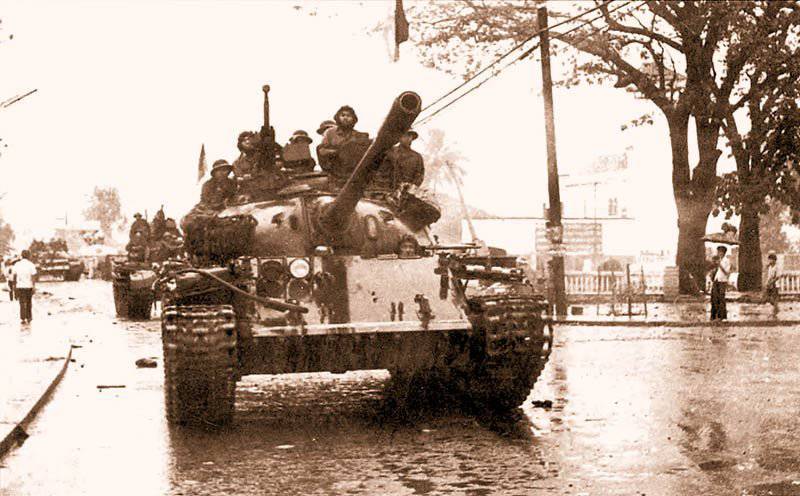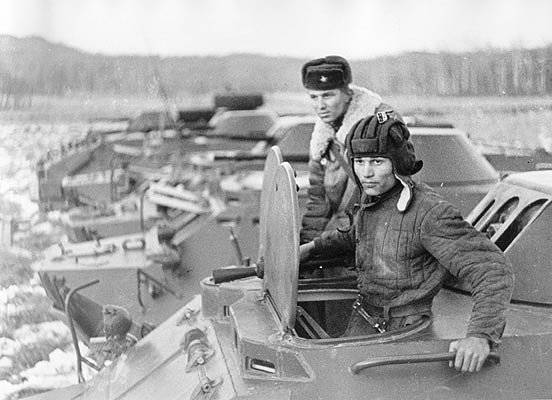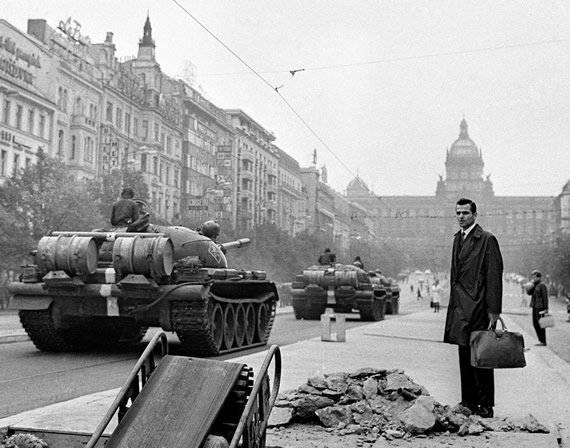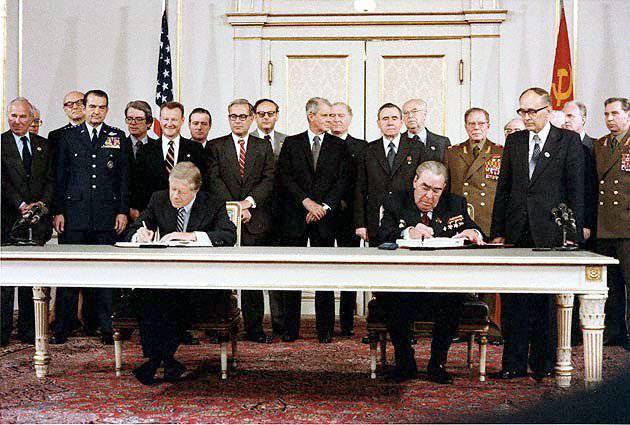Foreign policy of the USSR in the era of "stagnation"
Thanks to the help of the USSR, the Americans first got bogged down and then suffered a heavy defeat in Vietnam. Moreover, Washington in this war suffered tangible material and human losses. In order to wage the Vietnam War, the United States had to transfer over half a million soldiers there. Thousands of Americans were killed in the Vietnam War 58, more than 300 thousand were injured. The war was lost, the Americans had to actually flee, leaving their South Vietnamese puppets, warehouses of property, weapons.
The United States itself went through difficult years, and the killing of President Kennedy occurred due to the struggle of various power groups. There was a black fight for their rights. Washington, declaring itself a defender of the rights and freedoms of people of all mankind, "democracy", has long maintained a regime of racial discrimination against the black and Native American population.
And the Vietnam War caused a serious internal crisis in the USA itself. According to the American Gallup Institute, in 1964 — 1972, it was this war that ranked first among the most pressing issues that were of concern to the American public. The Vietnam War had a huge impact on the worldview of Americans, against its background was created by the movement "hippie", which was based on the youth, protesting against the war. The culmination of this movement was the so-called. “Going to the Pentagon”, when in October 1967, thousands of young people protesting against the Vietnam War gathered in the capital to 100. It was this war that became the basis for many cult American films, such as “Full Metal Jacket”, “The Deer Hunter”, “Apocalypse Now”, “Platoon”, “Forrest Gump”, “Rambo”, “We were Soldiers”.

Moscow managed, with great effort and expense, to rectify the crisis situation in the armed forces, the consequences of the Khrushchev "transformations." In 1960, parity was achieved with the North Atlantic Alliance in the field of nuclear and missile weapons. De facto, it was during the reign of Brezhnev that the USSR army was the most powerful army of the planet, which could make a throw up to the Atlantic Sea or to Beijing. That is why, according to opinion polls, the current citizens of the Russian Federation consider the Brezhnev era to be the safest and most stable for life. The mighty Air Force and Navy were created, which were constantly modernized and increased their capabilities. Thanks to the weapons, technologies created in the era of "stagnation", the Russian Federation still retains the status of a great power.
Our devoted allies at that time were Cubans, their doctors and military units, played a big role in expanding the sphere of the socialist bloc and confrontation with the West. So, with the help of Cubans and Soviet advisers, the Sandinista revolution (1979 year) defeated Nicaragua, which overthrew the pro-American dictator regime Anastasio Somoza. In the United States, many perceived the victory of this revolution as "the complete collapse of the US Central American policy" and even as a "lost battle that will lead to a defeat in the global confrontation between the USA and the USSR." With the help of Cubans, positions in El Salvador were strengthened.
Cubans with the support of the USSR successfully acted in Africa - the Mozambique Front for the Liberation of Mozambique (FRELIMO) won in Mozambique, which set the course for building socialism. In 1975, Angola gained independence from the Portuguese, where the USSR and Cuba supported the Popular Movement for the Liberation of Angola - the Labor Party (MPLA). The first Angolan president was the leader of the pro-Soviet MPLA group Agostinho Neto. In 1975, the pro-Soviet regime was established in Ethiopia, South Yemen was oriented towards the USSR.
However, it was not possible to restore the allied relations with China. Mao headed for turning China into a "third force" on the planet. In 1969, it almost went as far as the Sino-Soviet war - fighting for Damansky Island. In 1979, the Chinese attacked a USSR ally, Vietnam. Only the threat of Moscow to enter the war on the side of the Vietnamese forced Beijing to withdraw its troops. It is clear that Beijing, due to a number of reasons, such as technological backwardness, could not become the third force on the planet. Therefore, Beijing soon began to build "friendship" with the United States.

Eastern Europe
The alarming situation was in Eastern Europe. Western intelligence agencies and "werewolves" (that is, people pretending to be communists) did not stop trying to sway the situation in the socialist countries. After the Hungarian uprising 1956 of the year, Moscow went to the relief of this country, she was given significant economic freedoms, primarily allocated loans, other assistance. As a result, "Hungarian socialism" began to cause envy in other countries of the socialist bloc.
In Czechoslovakia, the Western special services tested for the first time the scenario of a velvet revolution, a coup without visible violence. In 1967, the “democratic” movement of intelligentsia, students, began. The top of the Czech Communist Party, led by Alexander Dubcek, proclaimed a policy of "democratization", and the Prague Spring began. But Moscow then did not pursue a “flexible” course, so the uprising was quickly and decisively stopped. The military contingents of the 5 countries of the Warsaw Pact were involved in Operation Danube. The preparation of the military operation was carried out by the commander-in-chief of the United Armed Forces of the states of the ATS Marshal I. I. Yakubovsky. True, a few days before the start of Operation Danube, its leader was the commander-in-chief of the Land Forces, Deputy Union Minister of Defense, Army General IG Pavlovsky. The Czechoslovak army did not resist, so there were no big casualties: 108 was killed and more than 500 Czechoslovak citizens were wounded, the Soviet Army’s combat losses were 12 people dead and 25 wounded, not fighting 84 dead and injured, 62 wounded and injured.
The party and political leadership of Czechoslovakia was biased. An attempt to tear off Czechoslovakia from the socialist bloc failed, but on the other hand, the West was able to use the event in the information war against the USSR. Russians were exposed by invaders and “executioners of freedom”.
In addition, Czechoslovakia was provided with a more liberal regime. The next country where they managed to cause unrest became Poland. Already in 1970, a series of strikes and mass riots took place in Gdansk, Gdynia and Szczecin, Vladislav Gomulka was replaced by Edward Gorek. It was then that the famous "independent trade union" Solidarity arose. The government of Gerek irresponsible financial policies, took loans in the USSR and in the West - by 1980, the country's debt reached 20 billion dollars, leading the country to a socio-economic crisis. At the same time, the Catholic Church became active, in October 1978 of the Kraków Cardinal Wojtyla was elected Pope (John Paul II). In the 1980, unrest began, Solidarity gained tremendous influence, only the military regime of Wojciech Jaruzelski (from 1981) was able to stabilize the situation.
Thus, as in the Russian Empire, in the Warsaw Pact, Poland became the “weak link” through which the West put pressure on Russia-USSR.

Soviet policy weaknesses
- The support of foreign communist parties, especially in Europe, has degenerated, did not give adequate returns. European communists received millions of dollars, but there was not much sense from them. Western Communist parties began to be redirected to the model of "Eurocommunism." They became parliamentary parties, claiming seats in parliaments and portfolios in governments, no longer trying to really change the system in their countries. They became "lured" by the opposition, receiving money from Moscow for their newspapers, election campaigns, the content of the idlers apparatus.
- After the removal of Khrushchev, the outflow of funds abroad, to the countries of the Third World, did not stop. Although there was little point in “feeding” such “friends” who chose the “third way”, there was no “non-alignment” movement. In this regard, the tactics and strategy of the Anglo-Saxons was more effective. The United States supported any anti-Soviet regime, even war criminals, even cannibals or corrupt officials, helping with weapons, military experts, loans from the International Monetary Fund. But at the same time they tied these regimes with debts, put finance and industry under their control, Western companies received the most important deposits of resources, land, resorts, etc.
- The hope that the “peaceful coexistence” of two systems on the planet - socialism and capitalism - is possible. In reality, it was clear that only one system could dominate. Moscow easily succumbed to all sorts of "peace" and "disarmament" initiatives of the West, which ultimately led to the weakening of the socialist bloc, the USSR. Reduced the motivation of the allies.
The policy of "detente"
In 1966, France withdrew from NATO, Paris became almost the best "friend and partner" of the USSR. Although in reality, France was still the enemy of socialism and one of the leading powers in the Western world.
In the same year, limited its cooperation with the Alliance of Spain. In Germany, the coming to power of the Social Democrats, led by Willy Brandt, led to a new "Eastern policy", as a result of which the Moscow Treaty between the USSR and the FRG was signed in 1970. The document recorded the inviolability of borders and the rejection of territorial claims (the question of East Prussia), he also declared the possibility of the unification of Germany and the GDR in the future. Germany also became the "best friend" of Moscow.
A dialogue began with the United States, in 1969, negotiations began to begin on the reduction of strategic offensive arms. In May, American President Nixon visited Moscow 1972, during a meeting with Brezhnev a number of documents were signed that led to “detente”: The Treaty on the Limitation of Anti-Ballistic Missile Systems (ABM Treaty); Interim Agreement on Certain Measures in the Field of Strategic Offensive Arms Reduction (SALT-1); Agreements on cooperation in the field of environmental protection, medical science and health care, science and technology, in the exploration and use of outer space for peaceful purposes, on the prevention of incidents in the open sea and in the airspace above it. Later several more agreements were signed - on trade, on the settlement of Lend-Lease, etc.
In 1975, the Final Act of the Conference on Security and Cooperation in Europe was signed. This treaty, in many ways, was a victory for the USSR: the political and territorial outcomes of the Second World War were consolidated; principles of inviolability of borders, territorial integrity of states, non-interference in the internal affairs of states, peaceful settlement of disputes were introduced. But there was one serious miscalculation, Moscow took upon itself the obligation on the very slippery question of “human rights and freedoms”.
As a result, the West will easily violate all other agreements, but at the same time go into the affairs of the USSR, Russia and poke its nose with "human rights" and the lack of "democracy".
End of "discharge"
“Discharging” was interrupted after the start of the Afghan war in 1979, a new stage of confrontation began, which eventually led to the collapse of the USSR. The United States interrupted economic, scientific, technical and cultural cooperation, called for a boycott of the Olympic Games in Moscow. In 1981, President R. Reagan ordered the full-scale production of neutron weapons in the United States. He also announced the SDI program (“Star Wars”).
The USSR deliberately pulled in a new arms race to undermine the Soviet economy. Although in reality, most of the American ambitious military, space programs were a skilled player bluff.
The Afghan war dealt a big blow to the USSR, the United States and its Asian ally, Pakistan, waged a real war against the Soviet Union, supporting the Mujahideen, the Taliban movement. Although the Soviet army did not lose this war, unlike the Americans in Vietnam. The USSR could have won if Moscow had a strong-willed, patriotic, energetic leadership.

J. Carter and L.I. Brezhnev sign strategic arms limitation treaty (SALT-II), Vienna, June 18, 1979.
Information